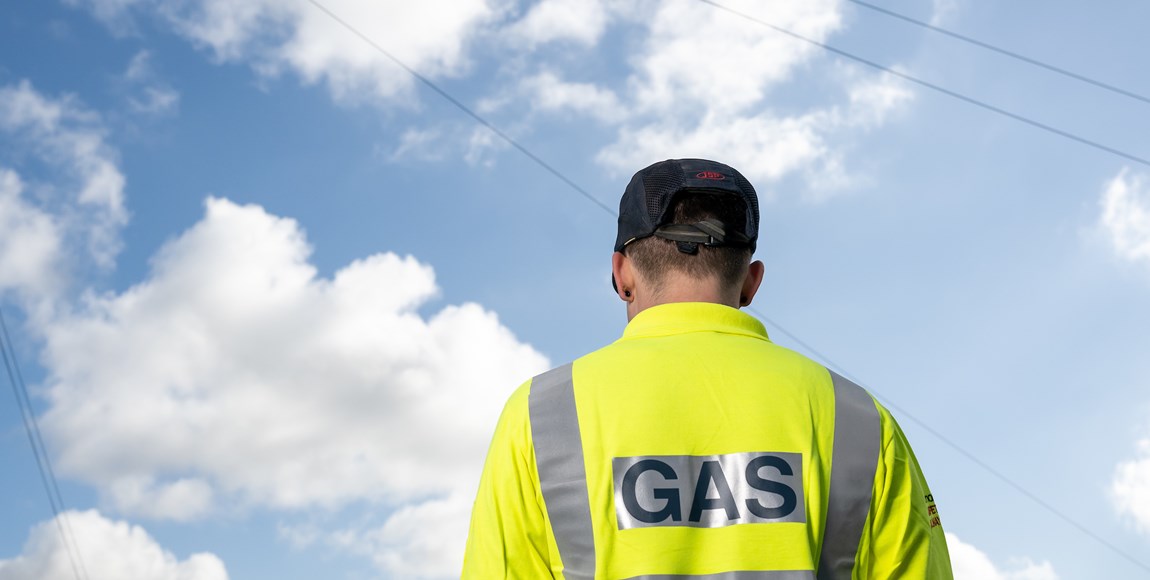
Wales & West Utilities has joined the UK’s other gas networks in highlighting how ‘tomorrow’s heat is today’s opportunity’ for reducing carbon emissions for homes across the country.
The statement comes as the five networks publish the work programme for Energy Networks Association’s (ENA) Gas Goes Green Programme for 2021.
The Gas Goes Green Pathway to Net Zero is the ENA and UK gas networks response to the need to replace the natural gas that 85% of Britain’s homes rely upon for their heating, hot water and cooking with a greener alternative. The Programme is making the changes required to convert Britain’s £24bn of gas network infrastructure to run on hydrogen and biomethane instead, helping support green jobs and investment in industry and offices around the country.
As the Programme continues through the first Planning & Research step of its six-step Pathway, it will also begin the work on its second step, Facilitating the Connection of More Green Gas. Highlights of this year’s activity include:
Detailed plans for how gas networks will deliver the Prime Minister’s target of blending up to 20% hydrogen into Britain’s gas network from 2023, so Britain’s homes can reduce their carbon emissions by the equivalent of 2.5m cars a year – all without changing their household appliances.
Putting in place the right licensing arrangements to build the infrastructure needed for the use of hydrogen in Britain’s industrial heartlands, supporting energy intensive industries as they decarbonise. Using hydrogen to decarbonise industry could create 43,000 UK jobs by 2050, according to research by consultants Element Energy.
Boosting British biomethane production, creating new green gas markets for farmers and other biomethane producers, by finding ways to convert existing biogas power plants to inject biomethane into the gas grid instead – as well streamlining the gas grid connection process for biomethane and hydrogen. Biomethane alone could deliver a 6% reduction in the UK’s greenhouse gas emissions by 2030 and provide heating for 6.4 million homes.
With a growing focus on the Government’s future decision on home heat decarbonisation, the Programme will be accompanied by events, webinars and digital activity which will set out how by using hydrogen and biomethane will mean that “tomorrow’s heat is today’s opportunity”. This includes:
- How gas network plans will reduce carbon emissions from Britain’s homes in a way that means we can use our heating, hot water & cooking as we’re used to, using people’s existing central heating systems to help keep bills down.
- How gas network innovation projects are using Britain’s world-leading expertise so gas networks can deliver hydrogen to Britain’s homes, businesses and industry safely – whilst maintaining secure energy supplies for us all.
- How hydrogen in Britain’s homes, businesses and industry will lead to green investment in communities around the country, supporting green jobs and skills in industry.
We’re delighted to be part of the Gas Goes Green programme, which is setting out the practical steps we need to take to decarbonise the gas network in the UK.
As independent research sets out, converting our existing safe and reliable gas network to green gas will help the UK get to Net Zero more sustainably and affordably than alternatives, while minimising disruption to energy consumers.
At Wales & West Utilities we’ve pledged to deliver a Net Zero ready gas network by 2035 and are already preparing the gas network across Wales and south west England to be ready for green gases like biomethane and hydrogen.
With high ambitions ahead of COP26 later this year, it has never been truer to say that tomorrow’s heat is today’s opportunity. These plans set out how Britain’s gas networks can reduce carbon emissions from Britain’s homes through the work they are delivering, and the exciting opportunities that lie ahead of us as we take the next steps on that journey.
Wales & West Utilities is committed to playing its part to help the UK get to Net Zero carbon emissions by 2050. It has 30 power stations connected to its network to support renewables like wind and solar power, while 19 green gas sites inject enough decarbonised green gas to power 130,000 homes. The company’s network also supplies bus garages in three locations, fuelling CNG buses that improve air quality and reduce carbon emissions from public transport.



